Science & Society
Sign up for our newsletter
We summarize the week's scientific breakthroughs every Thursday.
-
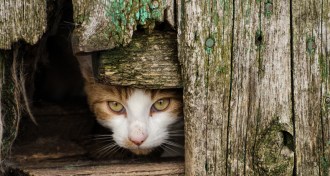 Animals
AnimalsFeral cats appear to be pathetic at controlling New York City’s rats
When cats are on the prowl, rats may become harder to see, but roaming cats actually killed only a few.
By Susan Milius -
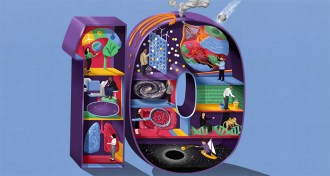 Science & Society
Science & SocietyThe SN 10: These scientists defy limits to tackle big problems
With a drive to understand how things work, these young researchers are making a mark in sustainable energy, medicine, astronomy and technology.
-
 Science & Society
Science & SocietyCelebrating successes while examining failures
Editor in Chief Nancy Shute discusses this year's 10 scientists to watch and the ups and downs of the scientific endeavor.
By Nancy Shute -
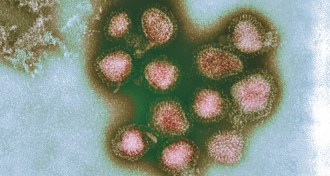 Health & Medicine
Health & Medicine50 years ago, a flu pandemic spurred vaccine research
A half-century after the Hong Kong flu pandemic, scientists are getting closer to a universal vaccine.
-
 Health & Medicine
Health & MedicineDrug overdose deaths in America are rising exponentially
Tracking rising numbers of deaths from a variety of drugs over the past 38 years shows that it isn’t just an opioid problem.
-
 Science & Society
Science & SocietyReaders focus on fake news, neutrinos, and more
Readers pondered how to effectively combat fake news, questioned the result of a clinical trial, and wanted to know more about neutrinos.
-
 Science & Society
Science & SocietyBuilding big experiments to study very little things
Editor in Chief Nancy Shute discusses our behind the scenes look at the giant equipment used to study the smallest bits of matter.
By Nancy Shute -
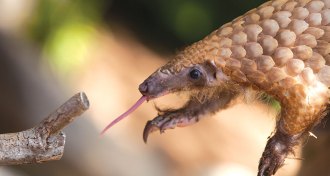 Animals
Animals‘Poached’ offers a deep, disturbing look into the illegal wildlife trade
In ‘Poached,’ a journalist reports from the front lines of the illegal wildlife trade and shows how conservationists are fighting back.
-
 Science & Society
Science & SocietyBefore it burned, Brazil’s National Museum gave much to science
When Brazil’s National Museum went up in flames, so did the hard work of the researchers who work there.
-
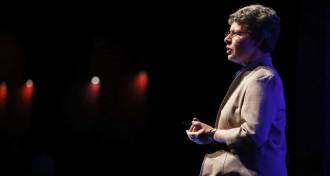 Astronomy
AstronomyJocelyn Bell Burnell wins big physics prize for 1967 pulsar discovery
Astrophysicist Jocelyn Bell Burnell speaks about winning the Breakthrough Prize, impostor syndrome and giving back.
-
 Astronomy
AstronomyTo boldly go where no robot explorer has gone before
Editor in Chief Nancy Shute discusses the importance of robotic space missions for scientific research.
By Nancy Shute -
 Astronomy
Astronomy‘Accessory to War’ probes the uneasy alliance between space science and the military
Neil deGrasse Tyson and Avis Lang’s ‘Accessory to War’ grapples with the millennia-old partnership between space science and warfare.